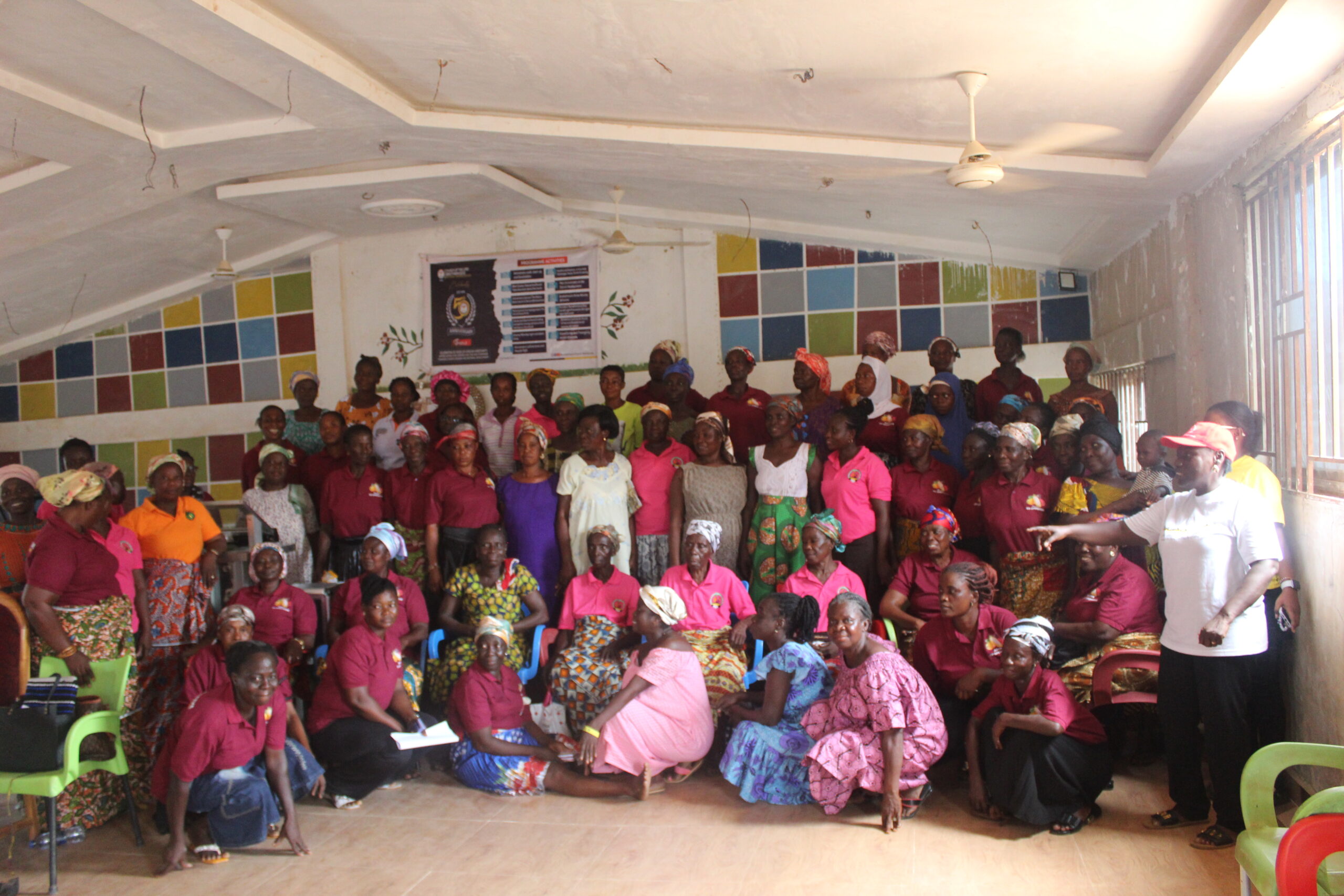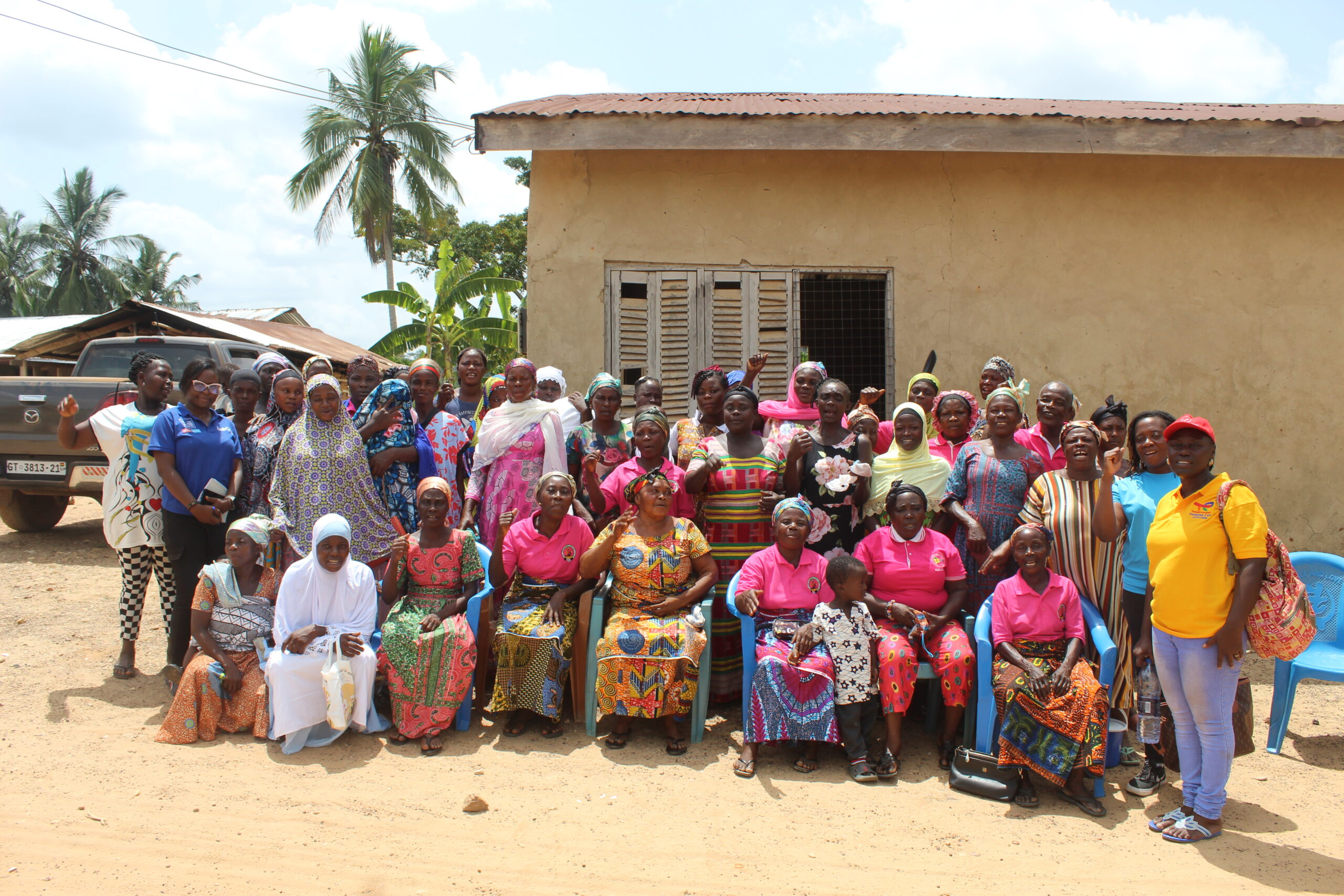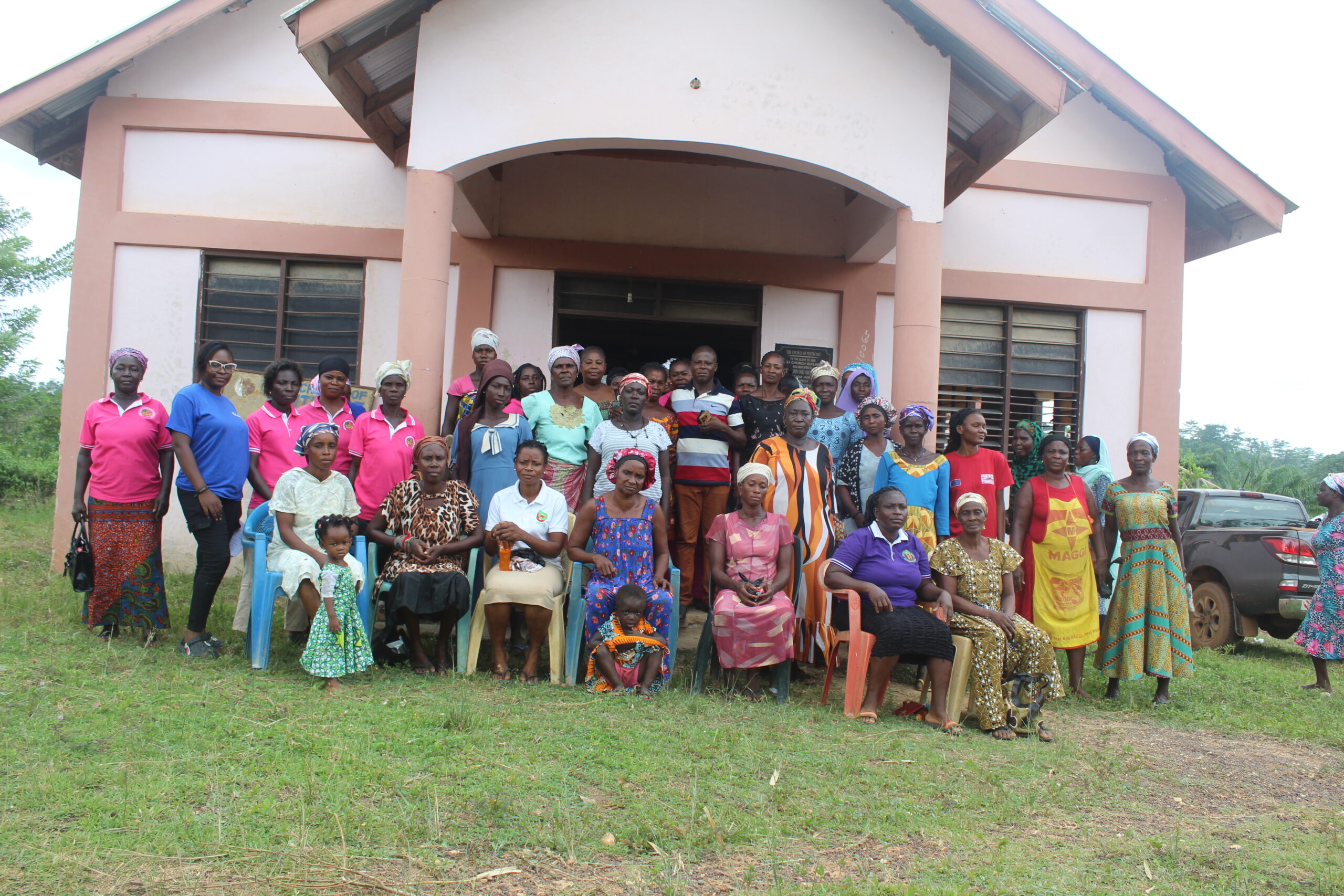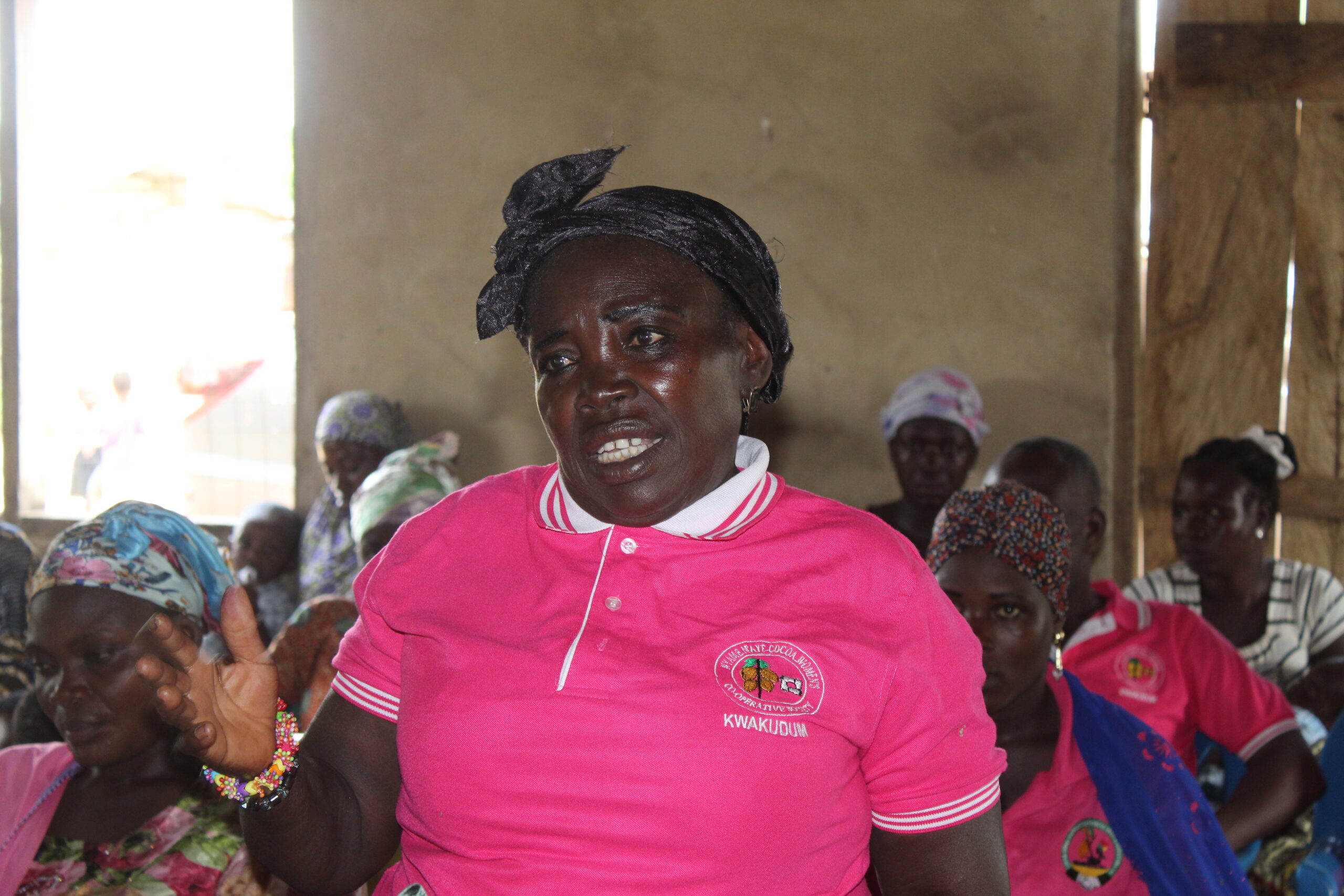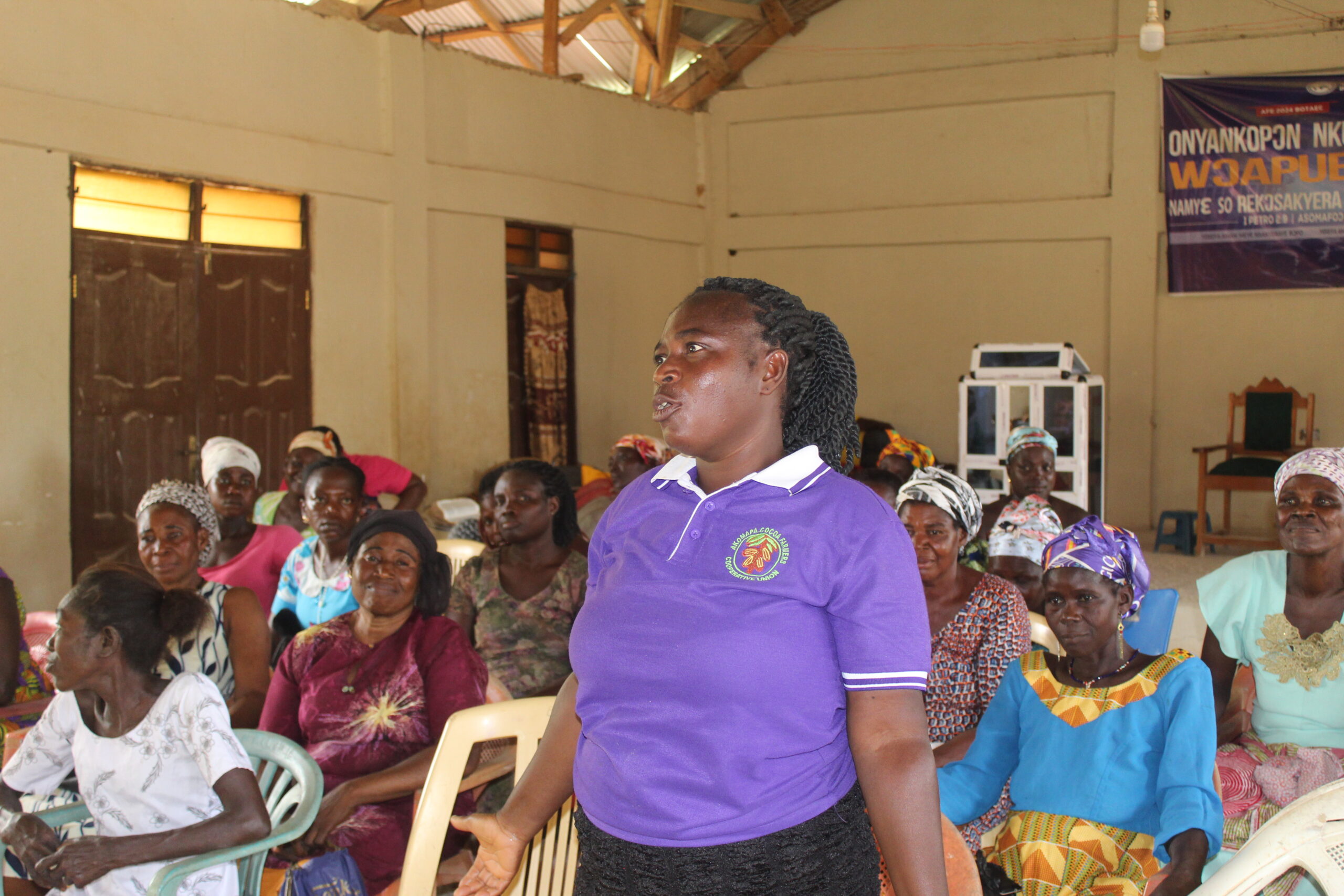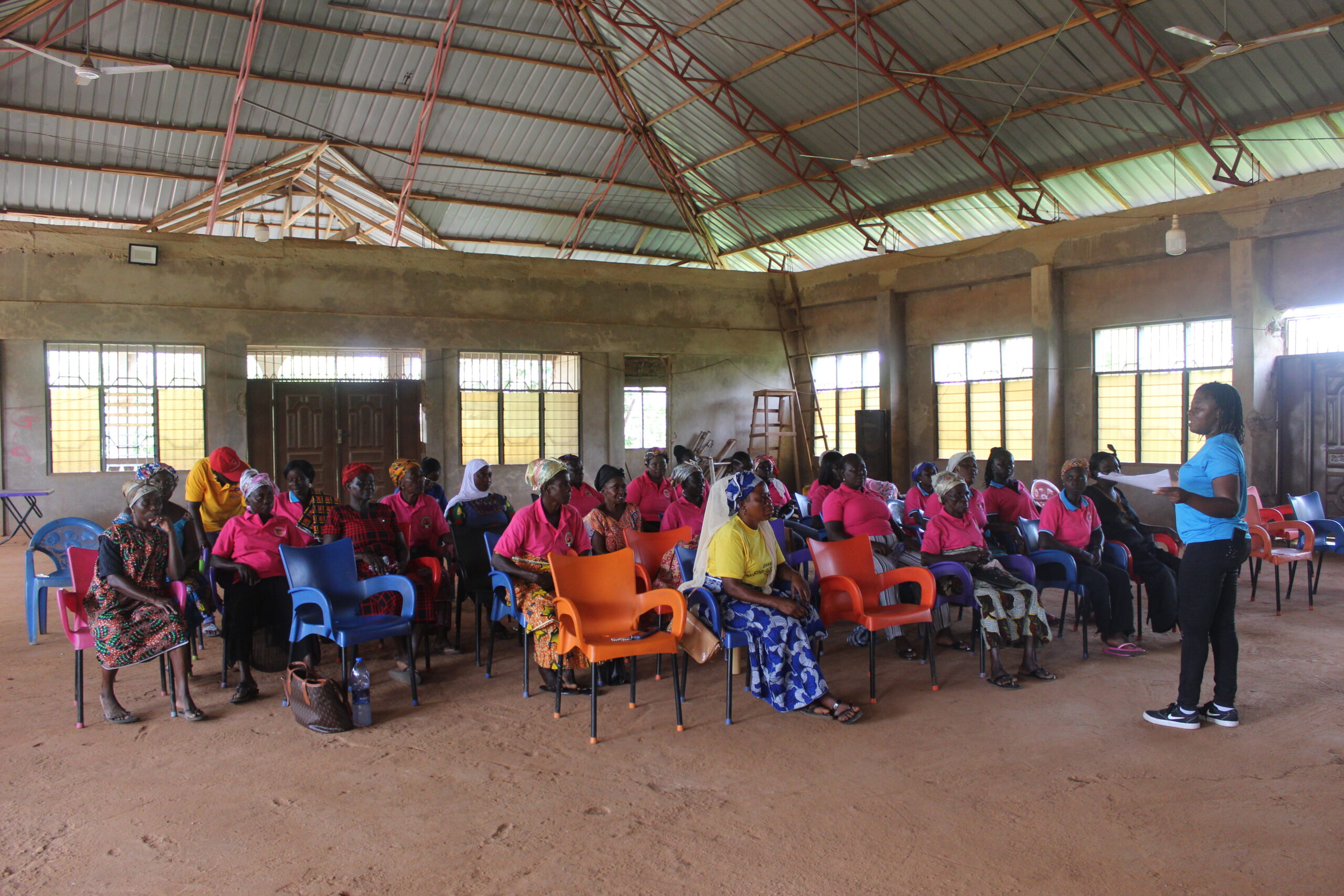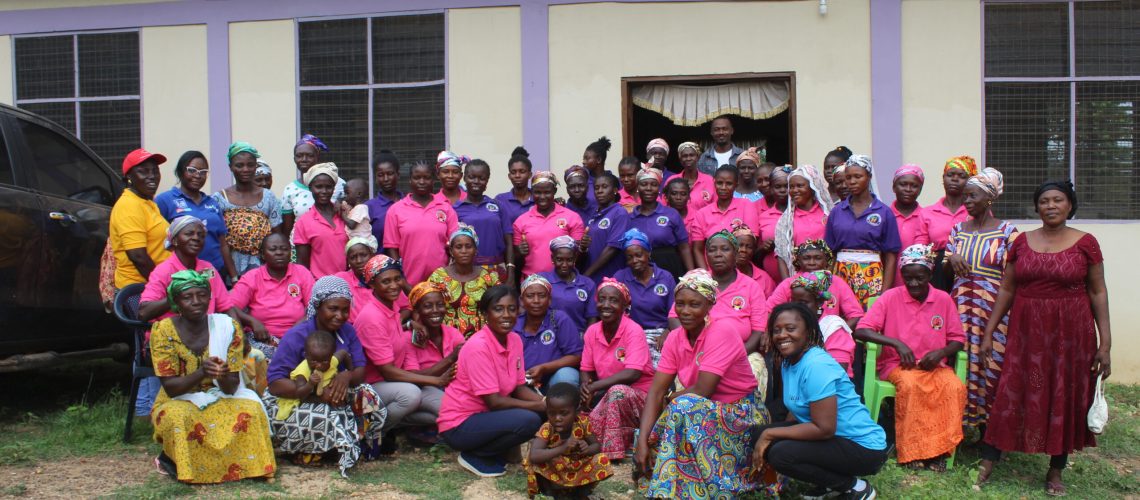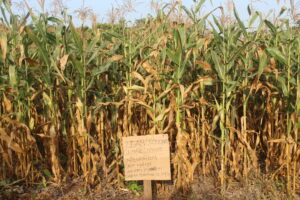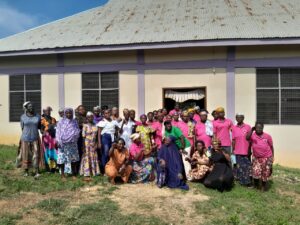EcoCare Ghana in collaboration with Palladium, is supporting Cocoa Mmaa Cooperative Cocoa Farmers Union and Marketing Limited in establishing cottage industries and other additional livelihood options for members. The cooperative society based in the Dunkwa-on-Offin District of the Central Region of Ghana expressed interest in launching a cottage industry and diversifying additional livelihood options due to the growing challenges faced by female cocoa farmers. They noted that these challenges have resulted in low productivity and deepening poverty.
Challenges faced by female cocoa farmers
In a focused group discussion with the farmers, they indicated that limited access to fertilizers and other farm inputs, high labor costs, low cocoa prices, and restricted access to financial assistance coupled with the adverse impacts of climate change are some of the key challenges currently threatening their livelihood.
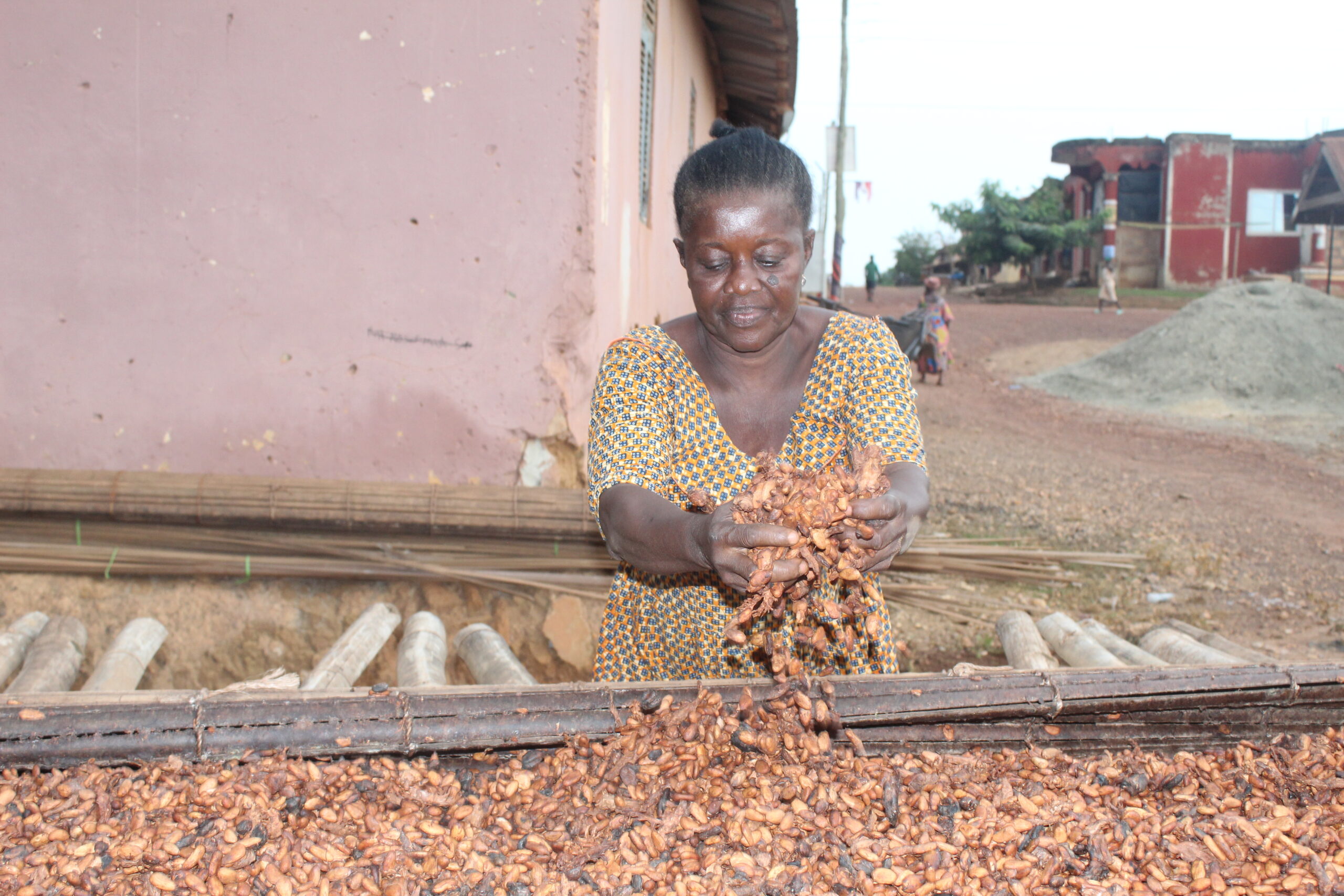
Speaking at the focus group discussion held at Kwame Prakrom, Madam Afia Konadu, explained, “I have cultivated about 20 acres of cocoa, but I barely harvest 20 bags all year round because I can’t afford to buy fertilizers and other farm inputs. The government supply of these inputs is often inadequate and delayed. We cannot spray our farms anymore, which has led to lower yields. Due to the prolonged dry spells and unpredictable rainfall patterns, my cocoa trees are dying. My children are not interested in farming, and hiring labor is expensive. I am poorer than before,” she lamented.
Madam Gladys Sekyere of Gyampokrom another community in the district also poured out her frustrations, ”I won the best female cocoa farmer in the district a few years ago because I was harvesting at least 300 bags of cocoa annually but my yield has been drastically reducing to about 150 bags due to increasing pest infestation, swollen shoot disease and the prolonged dry season. We are women farmers and must hire laborers for pruning and spraying. These have made cocoa farming even more expensive”. These, she noted, have led to increased poverty among the farmers and in some cases, the distressing decision to sell their cocoa farms to illegal miners.
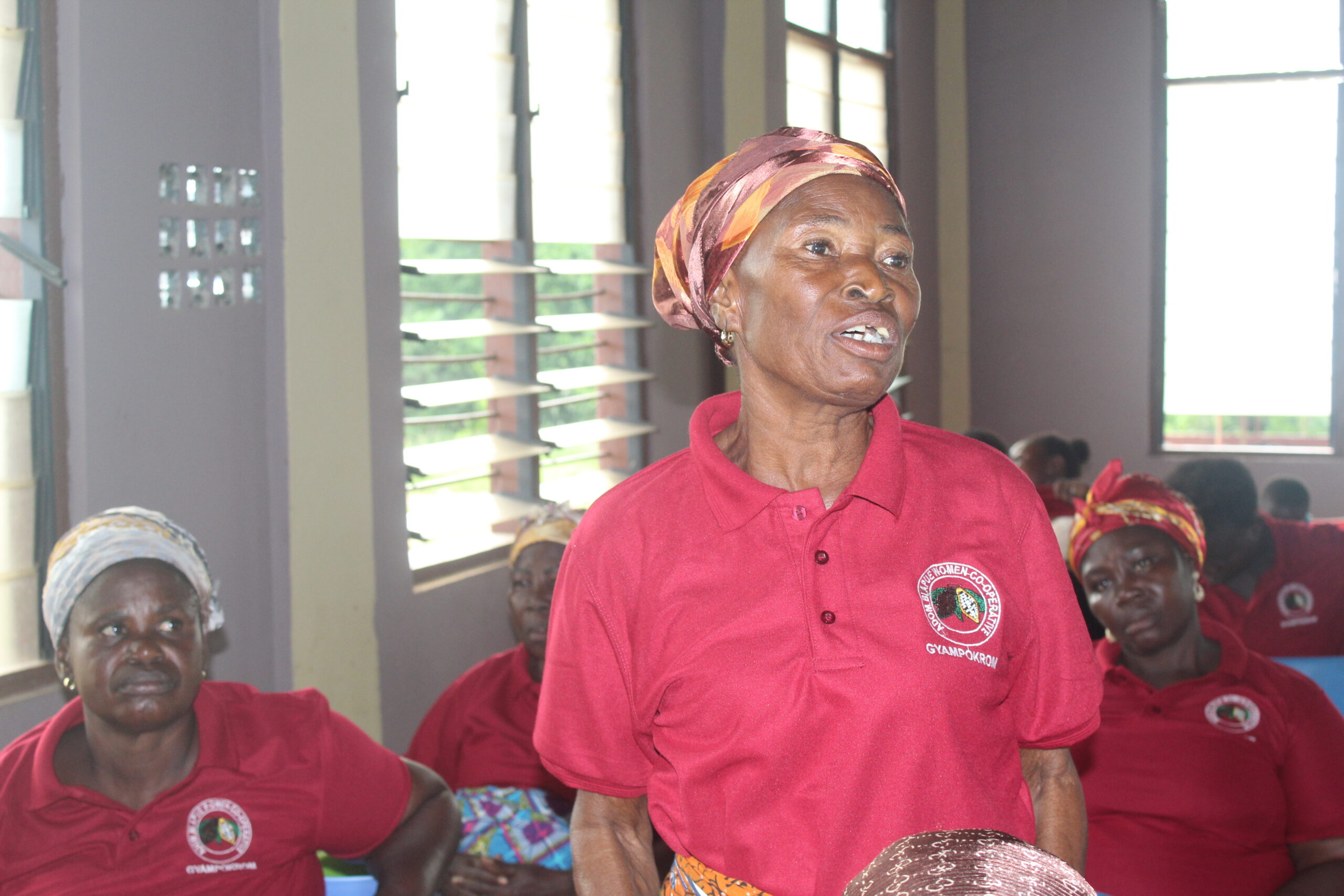
Yaa Kesewaa, a 90-year-old farmer, shared her distress about the future of cocoa farming, “I am almost 100 years old. I had to give my farm to a laborer to manage because my children were not interested in becoming cocoa farmers. They believe farming is no longer profitable. I started farming as a young woman with my husband over 70 years ago. Now, as I prepare for my grave, I don’t know who will take over my farm,” she cried.
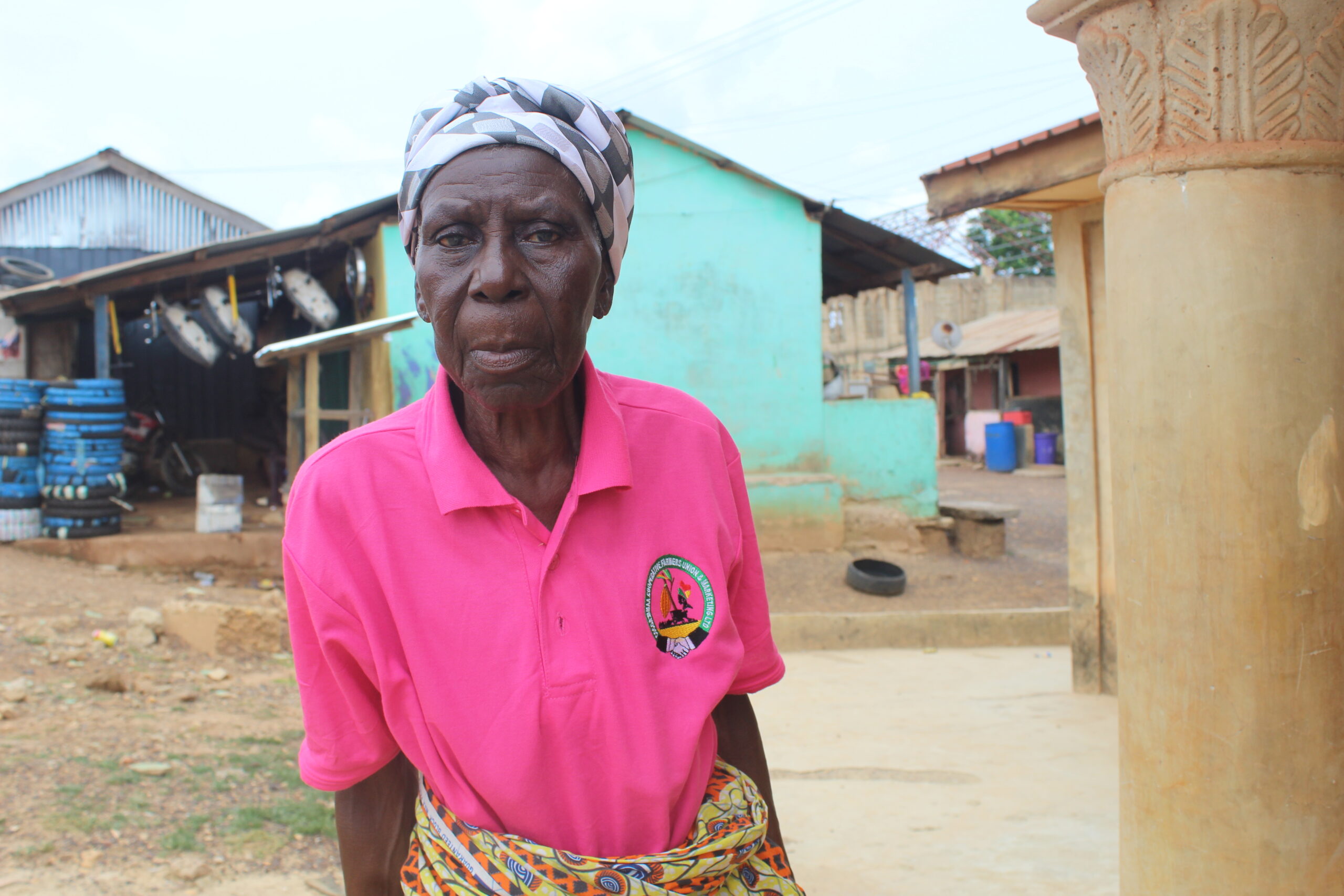
All the women echoed similar concerns adding that the roads to their farms are in bad shape, making it difficult to transport the fermented cocoa beans to the house for drying.
Establishment of cottage industry and additional livelihood options
The farmers welcomed the proposal by EcoCare Ghana to support them in establishing cottage industries to add value to their cocoa beans and earn extra income. Madam Leticia Yankey, the founder of the cooperative, expressed their need for additional income. “As female cocoa farmers, we face peculiar challenges due to our gender, we can barely have access to loans and other financial assistance that are readily available to our male counterparts. If the cottage industry is established here, we will get employed to earn extra money to reinvest in our farms.’’
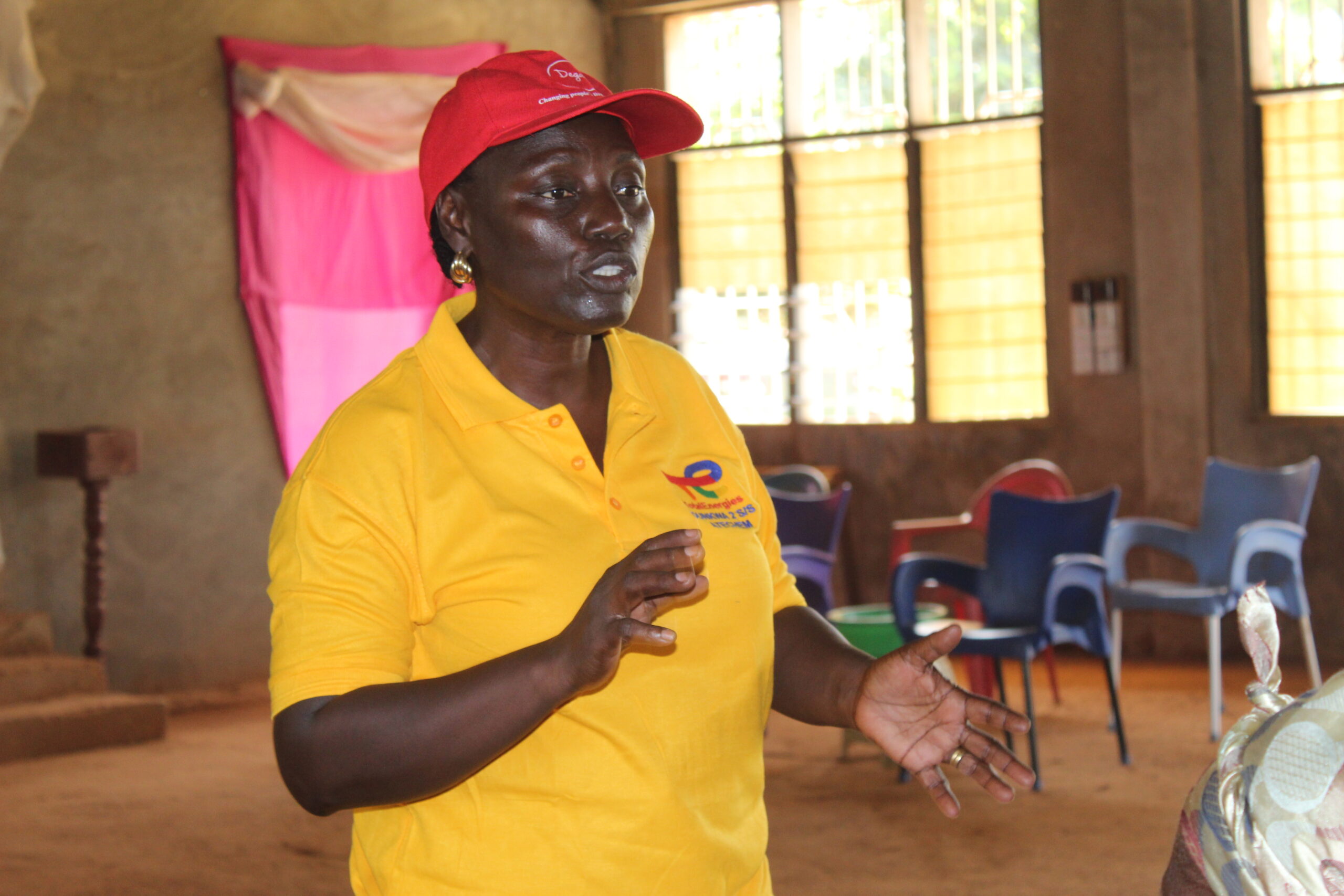
Some of the women also expressed their interest in increasing their investment in additional livelihoods such as rice farming, animal rearing, and food crop farming. They expressed great enthusiasm about establishing a cocoa-based cottage industry that would utilize cocoa beans from their farms to produce cocoa butter, cocoa oil, and chocolate. They were also happy about using the by-products such as the pods and leaves to produce organic soaps and fertilizer.
‘’We can produce our own Alata soap from the ashes made from cocoa pods. We and our families can use the soaps and pomade and sell some to the local and international markets. I am ready to move around and sell these products to get extra income’’, said Miss Rose Lambor excitedly during the discussion at Abudukrom.
Call for support.
The members of the cooperative then called on the government and private sector to support them with farm inputs, financial assistance, and training in climate-smart agriculture. ‘’If no one comes to help us, we will have no option than abandon our farms and look for other lucrative sources of income” Sakinatu Sulleymana stated emphatically. They also urged the government to address the issue of illegal mining which is not only making farming difficult but increasing their risk getting of sick from malaria due to stagnant waters in abandoned galamsey pits which serve as breeding places for mosquitoes.
EcoCare Ghana’s commitment to supporting cocoa farmers to earn living income and promote sustainability.
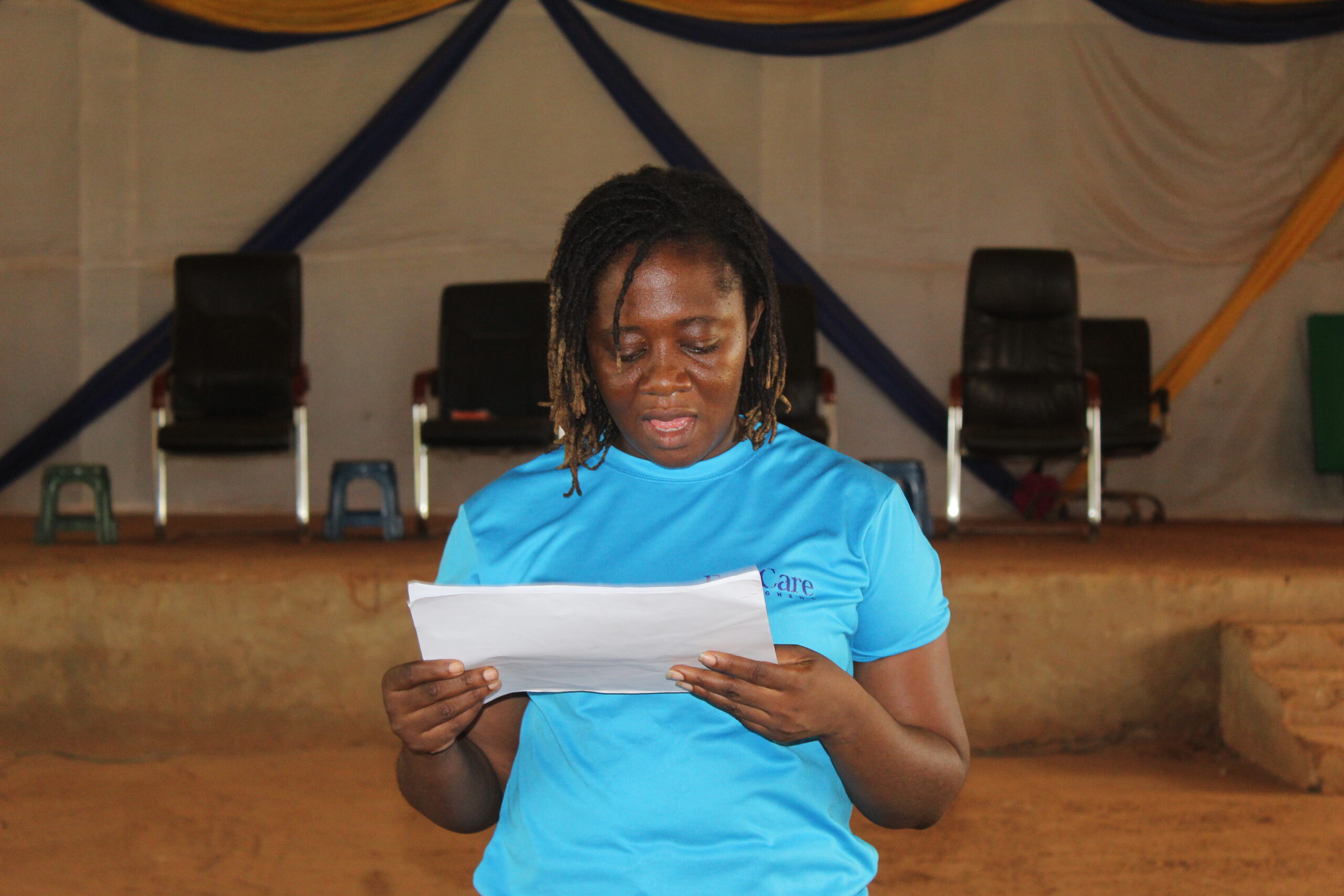
Ms. Evelyn Addor the Communication officer of EcoCare Ghana who facilitated the focus group discussions iterated EcoCare Ghana’s commitment to support Cocoa Mmaa and other cooperatives to empower their members. She added that when female cocoa farmers are financially independent, it brings development to their families and communities. She was optimistic that the establishment of the cottage industry by the cooperative would not only bring development but help curb the unemployment menace which has driven many young people into illegal mining and other social vices. She also called on other stakeholders to support the initiative.
